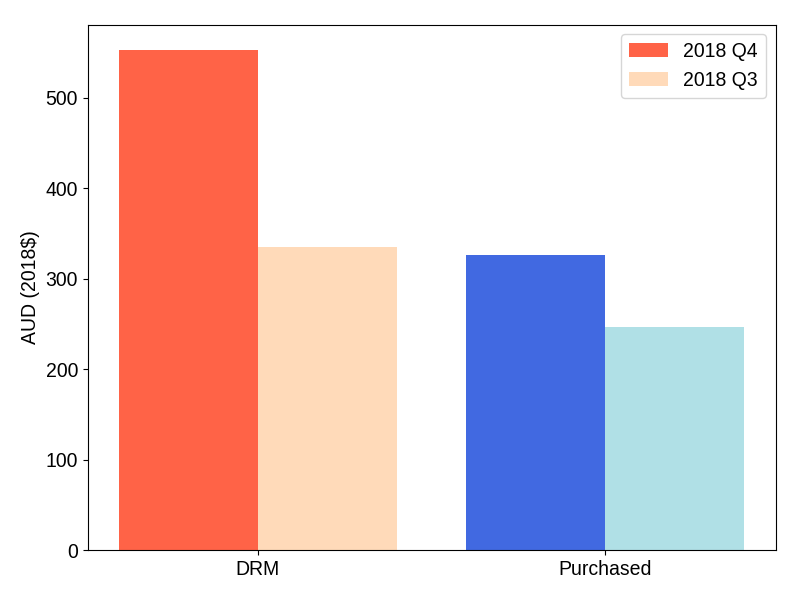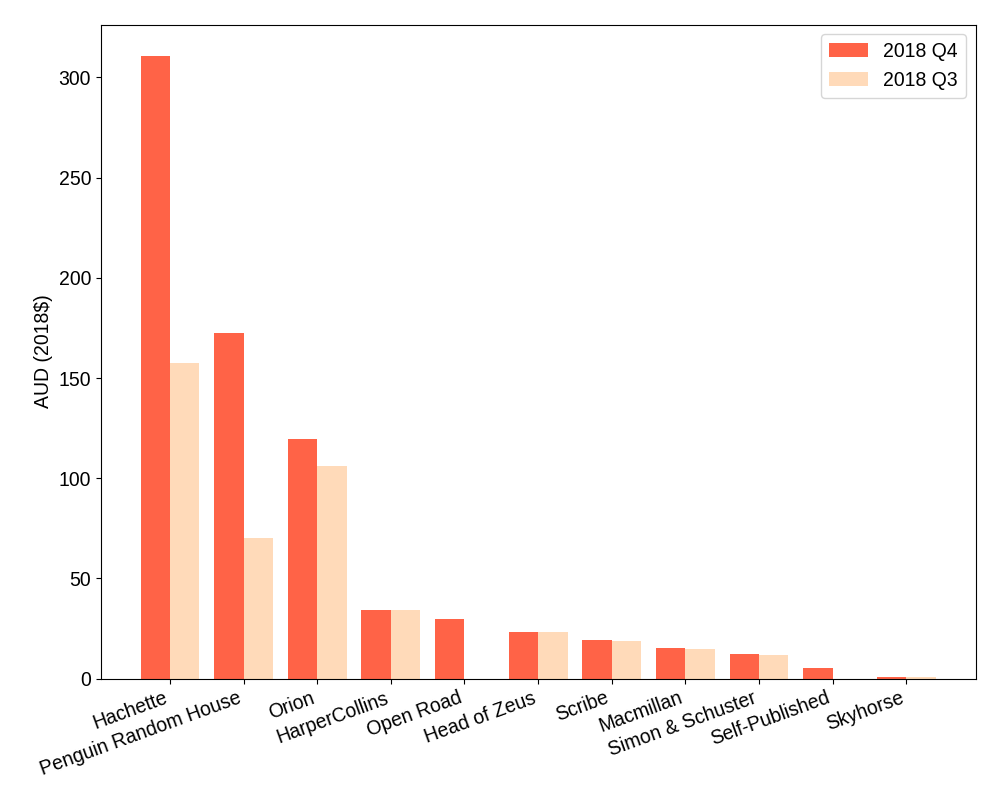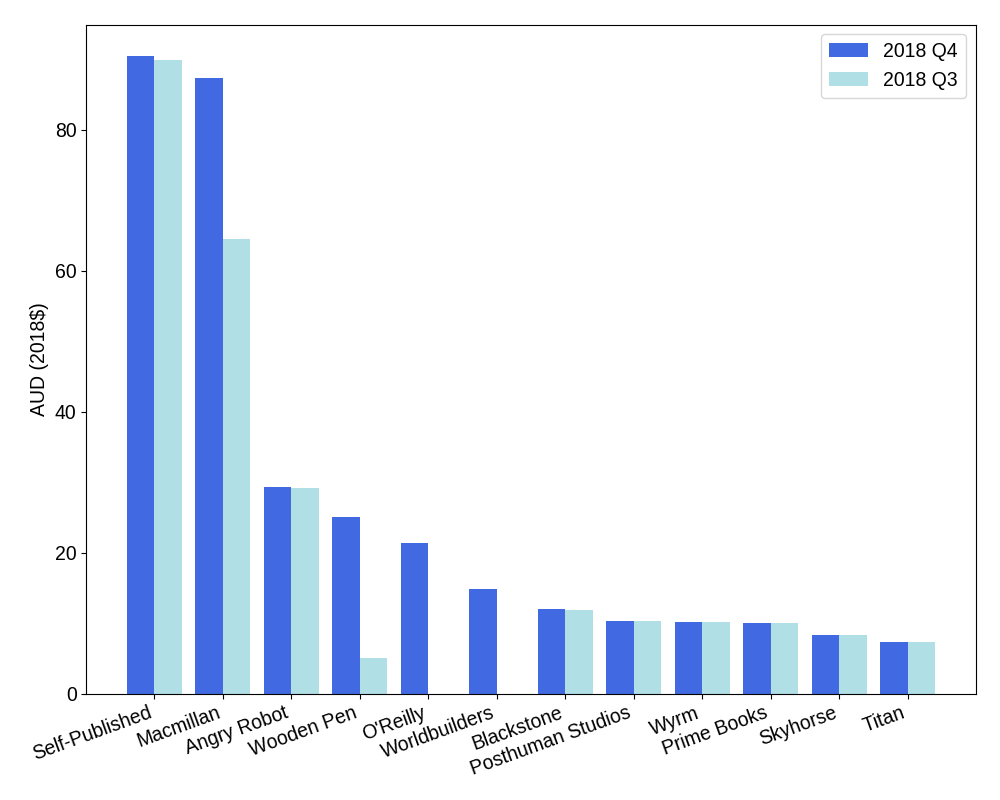DRM Round-up: Q4 2018
Merry Christmas! You know what's not merry? DRM. Let's see how the numbers have moved since last quarter.
I have a policy of refusing to purchase any eBooks encumbered with DRM, which I observe strictly. My frustration has grown so immense that I have begun cataloguing all the eBooks that I would have bought if not for DRM.
These are the results of my analysis to date, showing just how much more money publishers could have wrangled out of me if only they were willing to sell me actual products and not bogus contractural lookalikes.
Figure 1. Spending to date on eBooks, and potential spending prevented by DRM

Note 1: Figures adjusted for assumed average inflation rate of 2%p.a. and reported in Australian dollars at today's prices
Note 2: Purchased eBooks include DRM-free eBooks purchased in both Australian markets, and in US markets (despite georestrictions) where available DRM-free in the US but not Australia
To date, publishers could have made at least over 170% more money off me if they had sold DRM-free copies of eBooks, rising from a figure of 140% last quarter.
Figure 2. Potential spending prevented by DRM by publisher to date

Note: DRM-encumbered eBooks published by different publishers in Australia and the US are counted towards both publishers (as either being DRM-free would result in a purchase), so figures do not add up to those in Figure 1
Taking a closer look at that nasty red bar, staunch DRM advocate Hachette again tops this list through its Orbit imprint, just about doubling in missed revenue since last quarter. Among the authors contributing to this increase is Charles Stross, who is on-record as not supporting DRM.
The next big mover this quarter is Penguin Random House, primarily through its Spectra imprint (but also Ace, Del Rey and under its own name), more than doubling in missed revenue to overtake Orion for second place. Charles Stross again contributes to this figure, along with others like Max Barry who also publicly oppose DRM.
Last quarter saw the inclusion of a few disappointing offenders, smaller publishers like Head of Zeus, Scribe and Skyhorse, who are well placed to differentiate themselves by ditching DRM. This quarter, they are joined by Open Road Media, another independent publisher to fall into this hole.
This quarter also sees the unfortunate inclusion of a self-published work in this list, by Hugh Taylor, sold through Amazon's CreateSpace. DRM on CreateSpace ebooks is applied by authors, so it is disappointing to see an independent author subscribing to the misguided narrative that DRM benefits anyone but large publishers.
Figure 3. Spending on eBooks by publisher to date

Macmillan, through its Tor imprint, gives self-publishing a run for its money this quarter.
A shoutout goes to O'Reilly Media, a large established publisher of technical books, who have taken a strong stance against DRM. O'Reilly no longer sells these itself directly, and I do hope that this changes in direction again, but credit where credit is due.
The smaller publishers so far who have done well in not using DRM are Angry Robot, Wooden Pen, Worldbuilders, Blackstone, Posthuman Studios, Wyrm, Prime Books, Skyhorse and Titan.